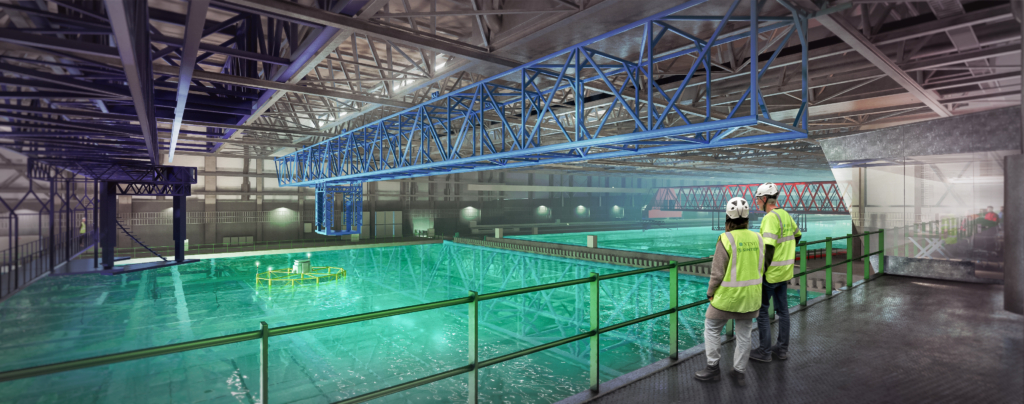| At Sea., Our stories, Recent News
As the world focuses on the urgent need to reduce energy consumption and transition toward renewable fuels, Bergen Engines is proud to announce our latest partnership with FME MarTrans, marking a significant step toward realizing this vision.
Since our inception in 1943, Bergen Engines has continually evolved to stay ahead of the ever-changing market. Our ability to anticipate, develop, and construct engines with low-emission technologies at the forefront of our design remains unmatched. With a global presence and a portfolio of references touching all continents, our commitment to reliability has solidified our position as a leading producer of medium-speed engines.
In the journey toward a greener future, one that drives a tangible shift, collaboration is key. In FME MarTrans, we stand proudly alongside esteemed partners in shipping, shipbuilding, technology suppliers, ports, classification societies and more, united in our dedication to a greener tomorrow.
What is FME MarTrans?
FME stands for the Norwegian Center for Environmentally Friendly Energy Research. The FME Maritime Energy Transition center (MarTrans) represents an 8-year collaboration involving 65 partners spanning the maritime industry and research sector. This center is dedicated to researching, innovating, and educating to accelerate the energy transition in the shipping industry.
Backed by funding exceeding 300 million NOK from the Research Council of Norway, this initiative stands as the world’s largest maritime research program of its kind.
Trond Vikan Johnsen, the Center’s Director, emphasized, “Shipping is well on its way to the green shift. Local pollution has significantly decreased, and major reductions have been achieved in climate emissions per transported item over the past decade. With growing demand for transportation and an ambition to reach zero emissions by 2050, we still have major challenges ahead of us.”
FME MarTrans Focus:
Did you know the maritime sector accounts for 9% of Norway’s greenhouse gas emissions and 12% of global transport emissions? Addressing this is a top priority for the center through four key challenges.
- Environmentally Friendly Fuel
Future fuels are projected to be both expensive and scarce, underscoring the urgent need for drastic reductions in consumption through enhanced energy efficiency. - Energy Systems Onboard
To utilize new energy carriers safely and efficiently, onboard systems must undergo further development. - Availability of Fuels
Making green fuels accessible requires the establishment of supply chains and the development of new port infrastructure. - Support and Integration
For a sustainable transition to succeed, new technology must be complemented with expertise in business models, environmental implications, regulatory compliance, and seamless integration into energy systems.
Why Norway?
The maritime industry stands as one of Norway’s largest export sectors, supporting 90,000 jobs and generating an annual value creation exceeding 150 billion NOK. Norway boasts the fifth-largest shipping fleet worldwide, positioning the center to hold a significant influence on the industry.
Norway is at the forefront of firm, ambitious targets for their vessels. In 2022, it was announced that the Norwegian Shipowners’ Association had set a target of 50% GHG cuts for vessels by 2030, with an aim for the entire Norwegian oceangoing fleet to be climate neutral by 2050.
The country also boasts innovative research capabilities, including the Norwegian Ocean Technology Centre. This state-of-the-art research facility, currently under construction in Trondheim, will serve as the premier research infrastructure for model-scale testing of ships and energy systems. Its phased implementation during the initial years of FME MarTrans will offer researchers invaluable opportunities to optimize ship technologies and operations.

© SINTEF
Leading the Way, Together
As FME MarTrans prepares to formally establish itself in the autumn of 2024, Bergen Engines looks ahead with optimism. Together with our partners, we are not merely envisioning a greener future for shipping, we are actively shaping it. Have a look below at who is joining us on the journey.
